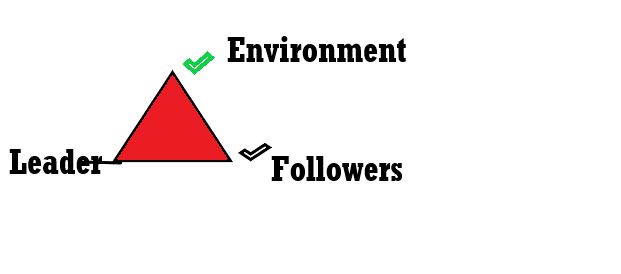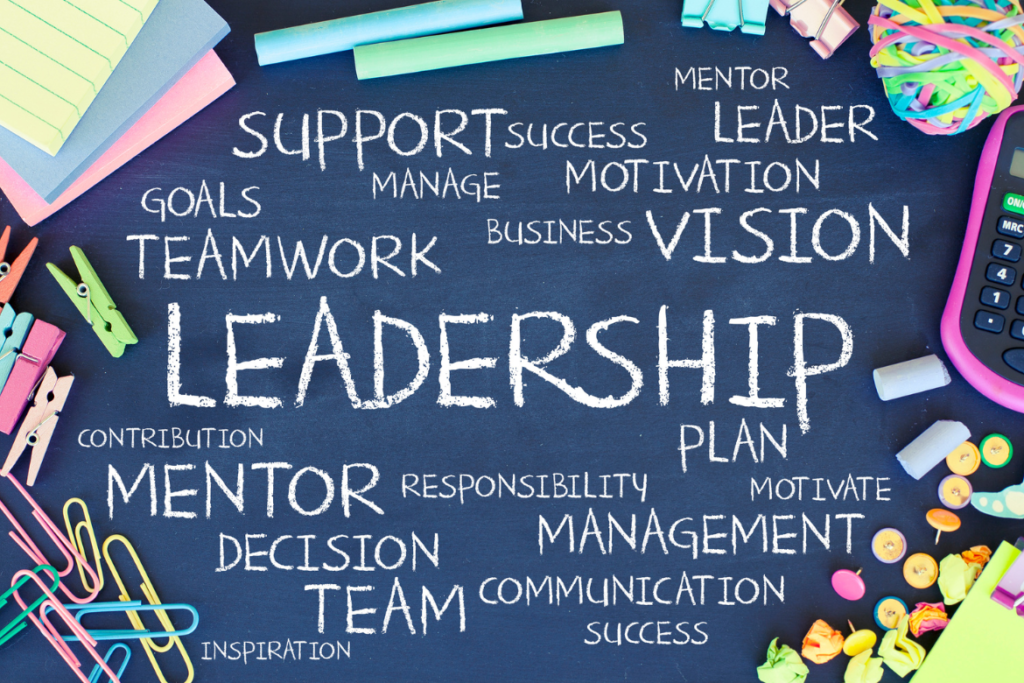Leadership Qualities for Leadership Skills is a process of influencing an individual or a group of people to achieve a set of goals within a fixed period in a given situation. Every individual is born with some inborn qualities that instigate him/her to be a leader in any field, in which he works.
- Who is a Leader?
- Ecology of Leadership Qualities Triangle
- Leadership Qualities 12 Powerful Qualities For You
- 1: A Balanced Person
- 2: Unbiased and Unemotional
- 3: Abstract Traits
- 4: Decision-Making Ability
- 5: Honesty & Truthfulness
- 6: Patriotism
- 7: Dynamism
- 8: Trustworthiness
- 9: Physically Fit
- 10: Socially Amicable
- 11: Pleasant Personality
- 12: Managerial Ability
- Kinds/Classifications of Leaderships
- Democratic Leadership
- Autocratic or Authoritarian Leadership
Who is a Leader?
A leader is a person who possesses all the abstract qualities to lead a group of persons with full confidence. A leader is a person who has followers and who must be followed. If the leader is not followed, he cannot be a leader let alone an ideal leader. Some people are born leaders by the blessings of Almighty Allah. They perhaps genetically possess the determined qualities, while the majority of leaders expose themselves as leaders through their hard work, accumulative experiences with sufficient expertise and knowledge, and strong backing of social power and economic solvency.
The technical knowledge and skills of leaders help them plan, organize, and implement the activities in a positive direction to achieve goals must have the power to evaluate the situations from time to time, to make sure of the set direction moving forward for achieving the desired goal.
Ecology of Leadership Qualities Triangle
The process of leadership can be represented by a triangle in which at one end is the leader, at the other end is the followers or workers, and at the third point of the triangle is the environment. That is the triangular form of representation, which is composed of the leader, the followers, and the environment. All three components need to interact simultaneously to demonstrate the activities during the process of leadership.

The ecology of leadership means the leader’s relationship with the social and political environment of the country, in which he resides. A good social and political environment ensures a healthy, mature leader at all levels, whether be it in the family, in the community, in society, or in the country. A healthy environment produces a healthy leader, on the other hand, an unhealthy and polluted environment produces an unhealthy and mentally unsound leader. This fact must have to be realized by people all over the world.
Leadership Qualities 12 Powerful Qualities For You
1: A Balanced Person
A leader is mentally sound, physically fit, and a balanced person with full maturity, clarity of mind, and rationality in his judgment. A leader must believe in the peaceful coexistence of life which is to believe in ‘’live and let live’’ others. The leader is usually very clear in powerful communication skills. His attitude is always positive to demonstrate all beneficial activities to co-workers in the right direction to achieve the objective goal as planned.
2: Unbiased and Unemotional
A good leader is usually very apologetic and certainly not biased or emotional. He does not hesitate to accept blame for wrongdoings but shares the joys of success with his fellow workers. But he is also firm and believes in accountability. He is held responsible for his activities and directions. Sometimes he either punishes or rewards his co-workers, as it is found appropriate.
3: Abstract Traits
A good leader is very honest, sincere, hard-working, punctual, intelligent, creative, and dynamic. His first and foremost priorities are his objectives and not personal favor or gain. As a leader, he has to direct his group efficiently. He has tolerance and the ability to cope with any unexpected situation.
4: Decision-Making Ability
A dynamic leader can make any effective decision wisely. If he requires, he consults with his fellow mates. The elements of his directions include leadership, delegations, communications, supervision, selection of competent co-workers, motivation, and coordination. The administrative principles of his directions should be vertical from upwards to downwards, from top man to bottom man, to follow a policy of chain of command and watch or see that the command is respected and followed.
5: Honesty & Truthfulness
The leader must be honest, sincere, frank, friendly, and truthful about his activities. These striking features will help him build mutual trust and amity among the followers. An honest and truthful leader is in great demand. According to the present perspective of globalization, there is an acute shortage of honest and truthful leaders. In every theological ethics, it is emphasized honesty and truthfulness.
6: Patriotism
Patriotism is a noble virtue that a leader must have to be successful in his career. Love towards own country is like heaven. Mother and motherland should be dearer to the leader. He must be ready to dedicate his life to the protection of honor and dignity of his mother and motherland. Patriotism is an inborn quality of a leader. It does not flourish overnight.
7: Dynamism
A great leader is dynamic. He tries to cope with situations, shares his thoughts and opinions with his fellow mates, and jumps to any perfect conclusion.
8: Trustworthiness
A good leader is a trustworthy person. His integrity and personality charm all. Everybody loves and respects him. He is true to his commitment. He never breaches trust but rather keeps up his words at any cost.
9: Physically Fit
The leader should be physically fit and mentally sound. His physical fitness is essential to lead the family, society, and even the country like a rudder.
10: Socially Amicable
A leader must have social acceptance. He should be socially amicable with interpersonal relationships and have a very high I.Q that can help him judge any unfair norms and activities.
11: Pleasant Personality
A good leader possesses a pleasant personality. This is his striking feature which captivates all irrespective of caste, creed, color, religion, and sex.
12: Managerial Ability
A great leader has managerial power and exercises superb domination over the field he is assigned to. He tactfully handles his subordinates through proper planning, organizing, staffing, coordinating, supervising, and materializing his goal. Thus he ascends the stairs of his career and reaches the zenith at one time. Such a leader can never think of topping out overnight.
Kinds/Classifications of Leaderships
Leadership Styles:- We can principally focus on two leadership democratic and autocratic.
Democratic Leadership
In this leadership, the idea goes with the idea of US past president, Abraham Lincoln, ‘’ for the people, of the people, and by the people.’’ That is to have a consultation with the mass or group for the benefit of the mass or the group. Learn more
Autocratic or Authoritarian Leadership

In this leadership, the leader makes policies and decisions and the co-workers or the subordinates just follow orders from the leader. It is a regimented form of administration from management, usually followed in the defense or army or an organization of a similar group of people.



2 comments
Excellent post. I certainly love this website. Continue the good work!
A million of thanks.